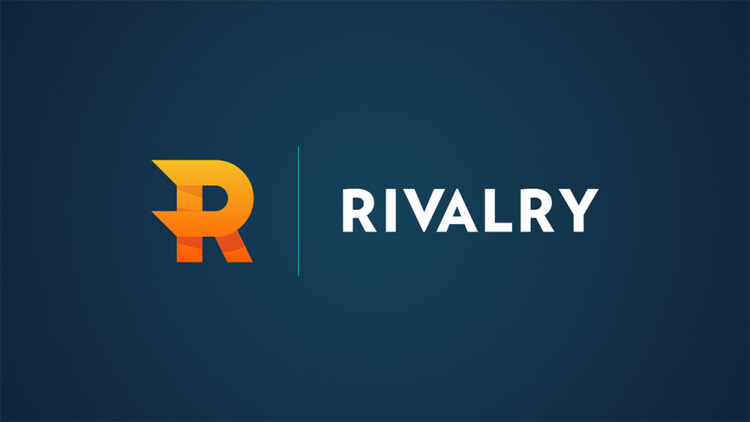Esports-focused betting company Rivalry achieved record revenues for 2022 at the cost of record losses. The TSXV-listed company recorded a net loss of $22.84M USD and had to raise a multi-million dollar investment for the second year in a row to avoid running out of funds in its pursuit of profitability.
In its annual report published Wednesday, Rivalry revealed that it generated record revenues of $19.55M in 2022, which marks a 140% increase from $8.13M in 2021. According to the company, its revenue growth was driven by an almost 200% increase in its betting handle to $17.84M, a growing user base—which reached approximately 1.5M by the end of the first quarter of 2023, new products, and a gain in reach, acquisition, and engagement among its targeted Millennial and Gen Z audience.
However, Rivalry’s surge in revenues came at a significant cost, as the company’s cost of revenue increased by 89% year-over-year to $12.35M, marketing expenses increased by 135% to $10.44M, and general and administrative expenses increased by 116% to $9.94M. In total, Rivalry accumulated $41.67M in revenue costs and operating expenses during 2022, resulting in its net loss increasing to $22.84M compared to a $17.84M net loss in 2021. As a result, the company’s cash reserves depleted to $12M as of Dec. 31, 2022, compared to a cash position of $27.59M at the end of 2021.
Combating a potential cash shortage, Rivalry announced a private placement today, which will be led by online betting company Pinnacle—which also operates a platform offering betting on esports events and has a history of sponsoring esports teams and events such as Scandinavian esports organization North or the 2018 FaceIt Major: London. The strategic investment with participation from sports betting, technology, and payments stakeholders is expected to be closed by May 5, and generate gross proceeds of up to $7.34M. Just last year, Rivalry raised $16.1M in fresh capital.
Raising new capital alone won’t be enough to achieve the positive outlook Rivalry’s CEO and co-founder Steven Salz shared, saying that “we have reached an inflection point in the business where the economic return of our strategy and unique position at the intersection of esports and betting has outlined a clear path to profitability.” The fundamental flaw in Rivalry’s current business operations is the lack of scalability with costs and expenses increasing at a slightly higher rate than its revenues.
A thought experiment shows that Rivalry’s ratio of revenue to cost of revenue, which was 81% in 2021 and 63% in 2022, will level off at around 53% over the next eight years under the assumption of steady growth. Simultaneously, over the same time frame, the marketing and general operating costs associated with driving such growth will level off at an expenses-to-revenue ratio of 100% based on the company’s development from 2021 to 2022, which is still disregarding other operating expenses, which added up to $8.94M in 2022. Consequently, Rivalry must find and implement scaling effects as fast as possible to avoid operating at a rate of paying more than $1.53 for each $1.00 of revenue.
As part of its annual report, Rivalry highlighted several operational achievements throughout 2022. The company was able to obtain gambling licenses in its first two fully regulated markets, a sports bookmaker license from the Northern Territory Racing Commission (Australia), and an internet gaming and sports betting license from Ontario’s Alcohol and Gaming Commission (Canada). Additionally, the company operates under an Isle of Man gambling license.
Furthermore, Rivalry added mobile sports—including Call of Duty Mobile, Free Fire, PUBG Mobile, League of Legends: Wild Rift, and Mobile Legends: Bang Bang—to its sportsbook in Q1 2022, launched a casino segment available in Ontario, Canada, in Q3 2022, and partnered with sports gamification company Low6 to launch Pick’em games for the 2022 League of Legends World Championship and Dota 2’s The International 11, also in Q3 2022.
Those additions to its betting and gambling offerings align with Rivalry’s brand strategy of targeting Millennial and Gen Z customers, who accounted for 97% of active users in 2022, and focusing on esports betting, which continued to drive significant growth, representing almost 90% of Rivalry’s sportsbook handle in 2022. While Rivalry did not make any statement on the age of its average customer, the company revealed that it was “successfully engaging the next generation bettor, with an average customer age of 26, and 82% of lifetime customers under the age of 30,” as part of its 2021 annual report. Thereby, targeting the demographic most vulnerable to pathological gambling. According to a scientific paper published in the Journal of American College Health in 2010 by Barnes, Welte, Hoffman, and Tidwell, up to 9% of young adults in the United States experience problems related to gambling.
As Rivalry is not allowed to offer betting in major markets such as the United States, Canada (except Ontario), the United Kingdom, New Zealand, Japan, and many EU countries, including Germany, France, Austria, Belgium, Ireland, Poland, Spain, Sweden, Switzerland, and Ukraine, the company shifted its sponsorship focus from partnering with British esports outfit Fnatic between 2018 and 2021 and partnering with Brazilian CS:GO team 00Nation and Southeast Asian organization Boom Esports until last year to becoming the title sponsor of a Filipino esports organization. Additionally, Rivalry is partnered with several Dota 2 influencers, including personalities targeting European and North American audiences in regions the platform is prohibited from offering its betting and gambling products.
Editor’s note: A conversion rate of $1 CAD = $0.73384 USD was used for all USD conversions in this article, based on the exchange rate as of April 26, 2023.
